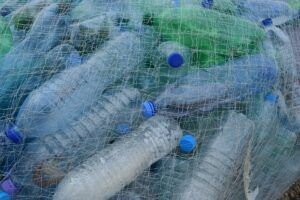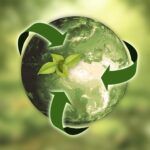A global law enforcement operation involving 61 countries has identified thousands of illicit activities behind severe marine pollution as well as hundreds of violations and exposed serious cases of contamination worldwide.
Codenamed 30 Days at Sea 2.0, the month-long (1-31 October) operation gathered more than 200 enforcement authorities worldwide for concerted action across all continents.
Scope and cause
Illustrating the severe global extent of marine pollution crime, preliminary operational results have already revealed more than 3,000 offences detected during 17,000 inspections.
The offences – such as illegal discharges at sea, in rivers, or in coastal areas – were found to have been committed primarily to avoid the cost of compliance with environmental legislation.
Operational Command Centre (OCC)
As part of Operation 30 Days at Sea 2.0, INTERPOL hosted an Operational Command Centre (OCC) in Singapore to focus on the illegal trade in plastic waste, a key threat to marine environment security. The OCC brought key countries together to trigger investigations into cases of illegal export or import of plastic waste.
The European leg of 30 Days at Sea 2.0 was coordinated in cooperation with Europol and Frontex – the European Border and Coast Guard Agency.
The operation also served to trigger new and stronger working partnerships between national agencies in some countries, which in turn boosted operational results and sustainable cooperation mechanisms
In Nigeria, INTERPOL’s National Central Bureau in Abuja coordinated the action of 18 authorities through a task force created to conduct inspections into illegal oil refineries, found responsible for severe oil leakages polluting the country’s waterways.
Information exchanged between Malaysia and The Netherlands permitted authorities to identify the source country of seven containers of plastic waste being illegally shipped into Malaysia from Belgium via Hong Kong, and to initiate their repatriation.
As part of the operation, some countries increased collective commitment to tackling plastic pollution crime through awareness campaigns in addition to enforcement actions.
Ecuador conducted a plastic waste collection campaign in the World Heritage site of the Galapagos Islands, resulting in the removal of more than 600 kg of refuse.
Indonesian authorities launched a public awareness campaign on national law enforcement’s newly strengthened approach to tackling marine pollution.
INTERPOL is now working with more than 100 enforcement agencies worldwide on investigations triggered by Operation 30 Days at Sea 2.0.







Leave a Reply